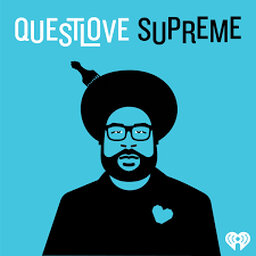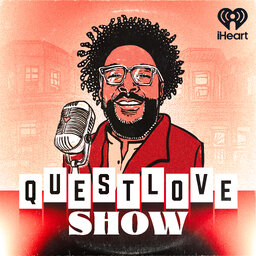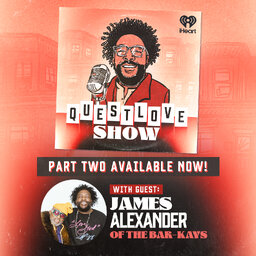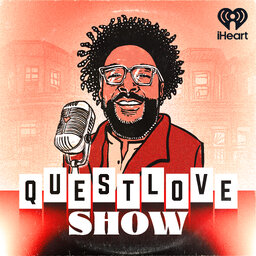QLS Classic: Esperanza Spalding
Travel back to early 2020 when Esperanza Spalding stopped by the studio to talk about the evolution of her artistry, the charms of Portland, Oregon, and some deeper discussions about spirituality.
Learn more about your ad-choices at https://www.iheartpodcastnetwork.com
In 1 playlist(s)
The Questlove Show
The Questlove Show builds on the award-winning Questlove Supreme podcast, bringing listeners into in…Social links
Follow podcast
Recent clips

QLS Classic: Lena Waithe
1:32:57

BONUS: James Alexander on The Bar-Kays' Rivalry With Cameo
09:18

James Alexander of The Bar-Kays Part 2
1:01:04
 The Questlove Show
The Questlove Show